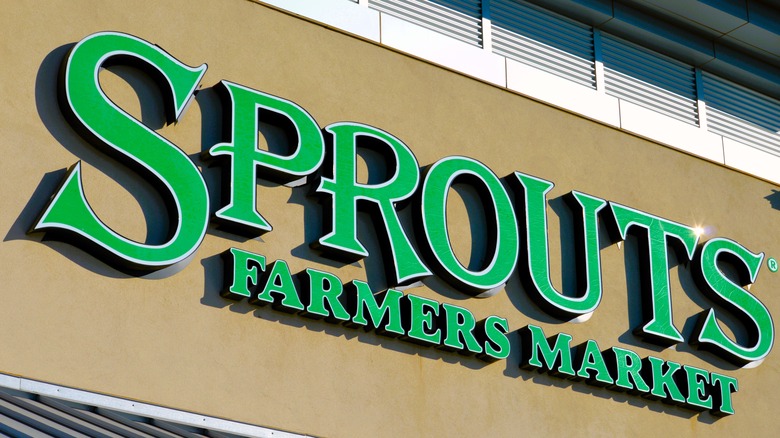This article is proudly sponsored by Texas Student Media!
Sprouts Farmers Market (SFM): The Natural Grocer Betting Big on Healthy Margins
The Healthy Grocer With a Game Plan
Sprouts Farmers Market isn’t trying to be Walmart or Kroger — it’s carving out its niche as the healthy, produce-first grocery chain. Walk into a Sprouts and you’re greeted with a center-store produce market, bulk bins, and shelves full of gluten-free, keto, vegan, and “clean-label” products.
But for investors, this isn’t just about good vibes and vitamins. It’s about whether Sprouts can keep growing stores, protect its margins, and fend off competitors as the grocery wars heat up.
The SFM Money Machine — How It Really Works
Sprouts makes money by focusing on a few key levers — and they’re not shy about squeezing them.
1. Premium Products & Private Label Power
Sprouts thrives on selling “attribute” products — organic, non-GMO, plant-based, paleo, keto — which carry higher margins than regular groceries. Its private-label line is a margin booster too, letting Sprouts control costs and pricing power.
2. Produce as the Foot-Traffic Magnet
Sprouts puts produce in the middle of the store for a reason — it’s the main draw. People stop in for fresh fruit and vegetables, then pick up supplements, snacks, and packaged goods along the way.
3. Small-Format Store Expansion
Sprouts is rolling out smaller stores — around 23,000 square feet — that are cheaper to build, easier to staff, and more profitable per square foot.
4. E-Commerce and Omnichannel Sales
Online ordering, delivery partnerships, and click-and-collect now make up a meaningful portion of sales and keep growing.
5. Share Buybacks & Capital Discipline
Sprouts has a $1 billion buyback program in place, shrinking the share count and boosting EPS.
When SFM Stock Outperforms
Sprouts wins when:
-
Health-conscious consumers keep spending despite inflation.
-
Same-store sales rise, proving the concept works.
-
New store openings meet or beat performance targets.
-
Free cash flow funds aggressive buybacks.
-
Inflation keeps premium pricing power intact.

When SFM Stock Struggles
Sprouts suffers when:
-
Consumers trade down to cheaper grocery options.
-
Big-box grocers push deeper into organic and specialty foods.
-
Produce costs spike or spoilage worsens.
-
Expansion cannibalizes sales or hurts margins.
-
Digital channels drag on profitability.
Strengths That Keep Sprouts Competitive
-
Brand loyalty and curated assortment of “attribute-driven” products
-
Smaller, cheaper-to-open stores that expand profitably
-
Consistently strong ROIC and disciplined capital allocation
Weak Spots Investors Need to Watch
-
Ultra-thin grocery margins that can collapse fast
-
Rising labor and logistics costs
-
Competitive pressure from larger grocers with bigger supply chains
Bottom Line for Investors
Sprouts isn’t a moonshot — it’s a steady grower with a focused strategy. The real question isn’t whether people will eat; it’s whether they’ll keep paying up for premium produce and private-label kale chips even in a downturn.
For investors who believe health-conscious spending will stay resilient and that Sprouts can keep opening profitable new stores, SFM offers solid, compounding potential. For those worried about consumer trade-down or margin pressure, this might be one to watch from the sidelines until the next pullback.
DISCLAIMER: This analysis of the aforementioned stock security is in no way to be construed, understood, or seen as formal, professional, or any other form of investment advice. We are simply expressing our opinions regarding a publicly traded entity.
© 2025 MacroHint.com. All rights reserved.